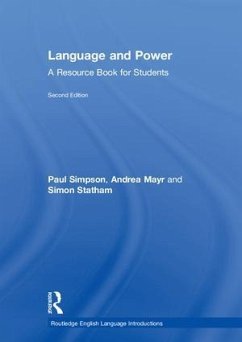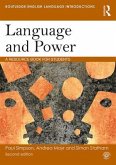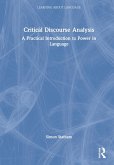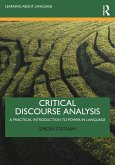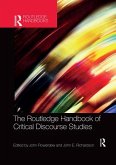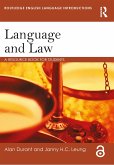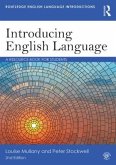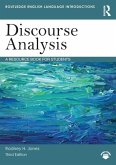Routledge English Language Introductions cover core areas of language study and are one-stop resources for students.
Assuming no prior knowledge, books in the series offer an accessible overview of the subject, with activities, study questions, sample analyses, commentaries and key readings - all in the same volume. The innovative and flexible 'two-dimensional' structure is built around four sections - introduction, development, exploration and extension - which offer self-contained stages for study. Each topic can also be read across these sections, enabling the reader to build gradually on the knowledge gained.
Language and Power, Second Edition has been completely revised and updated and includes:
a comprehensive survey of the ways in which language intersects and connects with the social, cultural and political aspects of power;an introduction to the history of the field, covering all the major approaches, theoretical concepts and methods of analysis in this important and developing area of academic study;coverage of all the 'traditional' topics, such as race, gender and institutional power, but also newer topics such as the discourse of post-truth, and the power of social media;readings from works by seminal figures in the field, such as Robin Lakoff, Deborah Cameron and Teun van Dijk;real texts and examples throughout, including advertisements from cosmetics companies; newspaper articles and headlines; websites and internet media; and spoken dialogues such as political and presidential speeches;a supporting companion website that aims to challenge students at a more advanced level and which features extra reading, exercises, follow-up activities, and suggestions for further work.
Language and Power will be essential reading for students studying English language or linguistics.
Assuming no prior knowledge, books in the series offer an accessible overview of the subject, with activities, study questions, sample analyses, commentaries and key readings - all in the same volume. The innovative and flexible 'two-dimensional' structure is built around four sections - introduction, development, exploration and extension - which offer self-contained stages for study. Each topic can also be read across these sections, enabling the reader to build gradually on the knowledge gained.
Language and Power, Second Edition has been completely revised and updated and includes:
a comprehensive survey of the ways in which language intersects and connects with the social, cultural and political aspects of power;an introduction to the history of the field, covering all the major approaches, theoretical concepts and methods of analysis in this important and developing area of academic study;coverage of all the 'traditional' topics, such as race, gender and institutional power, but also newer topics such as the discourse of post-truth, and the power of social media;readings from works by seminal figures in the field, such as Robin Lakoff, Deborah Cameron and Teun van Dijk;real texts and examples throughout, including advertisements from cosmetics companies; newspaper articles and headlines; websites and internet media; and spoken dialogues such as political and presidential speeches;a supporting companion website that aims to challenge students at a more advanced level and which features extra reading, exercises, follow-up activities, and suggestions for further work.
Language and Power will be essential reading for students studying English language or linguistics.
"This new edition is an invaluable resource for students of language and power. It gives a clear and concise introduction to theoretical issues of language and power, a full range of tools for analysing texts and discourse, and excellent examples which illustrate how to apply these tools. The new sections on 'tweeting politics', 'truth' and 'mediated relations' and the inclusion of a new reading on 'Populism and post-truth politics' by Robin Lakoff are welcome additions which bring the book right up to date with contemporary concerns."
Michael Farrelly, University of Hull, UK
"The addition of new chapters on the language of social media and the discourse of post-truth, as well as the revamping of many of the example texts, all packaged in the innovative four strand 2D structure, make this an outstanding textbook for students of language and discourse studies... a much-needed toolkit for critically analysing many of the important national and international issues of the day."
Paul McIlvenny, Aalborg University, Denmark
Michael Farrelly, University of Hull, UK
"The addition of new chapters on the language of social media and the discourse of post-truth, as well as the revamping of many of the example texts, all packaged in the innovative four strand 2D structure, make this an outstanding textbook for students of language and discourse studies... a much-needed toolkit for critically analysing many of the important national and international issues of the day."
Paul McIlvenny, Aalborg University, Denmark

